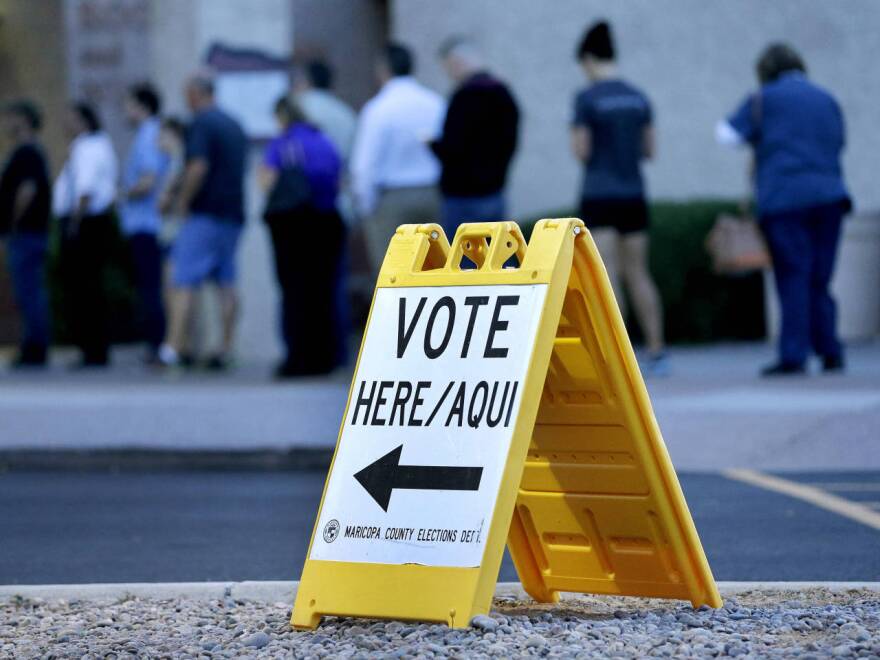A bill titled HB 2492 recently signed into law by Gov. Doug Ducey will require proof of U.S. citizenship for Arizonans to vote in federal elections. The state already has a similar requirement on the books for state elections, and Republican supporters say the new law is needed to ensure voting integrity. Voting rights advocates worry the new law could purge the voter registrations for thousands of already marginalized people in the state like tribal elders and people of color. To help sort out the details of the new law, KNAU’s Ryan Heinsius spoke with Northern Arizona University political science professor Fred Solop.
Ryan Heinsius: The new law requires proof of citizenship for federal elections. Why is federal versus state elections an important distinction here?
Fred Solop: In Arizona we already have proof of citizenship for state elections and there is a small, let’s say, exemption for federal elections. So, for quite some time we’ve actually had two forms of voter registration available in Arizona. We have the one where you could register with the state and you could therefore vote in state elections and federal elections. You had to show proof of citizenship. Or you could go the second route, use the federal form that doesn’t require you to show proof of citizenship. But then you’re limited to just voting in federal elections—presidential elections, congressional elections. So we’ve had these two forms of voter registration on the books for some time and this law is trying to bring them into alignment where now with the federal registration it would require proof of citizenship.
RH: The U.S. Supreme Court in 2013 ruled that this type of requirement was unconstitutional, and the Legislature’s own lawyers also think it’s likely unconstitutional. What might be the Republicans’ game plan here?
FS: The real issue here is that there’s a law on the books from the federal government and that federal law says you can’t require citizenship when using the federal form. We have a country where we believe in national supremacy—the national laws are supreme over the state laws, they trump the state laws. And in this situation, I think the state’s going to lose. So what’s the game plan? Well, this going to go to court, this is absolutely going to go to court, but it’s this attempt to challenge, to whittle away at Supreme Court precedent, at federal laws, by pushing, pushing, pushing. And the belief is that the Supreme Court has changed, the composition of members of the court has changed, and maybe there’s an opening. It’s going to get kicked down the road. It’s going to cost us, the taxpayers, a lot of money, and the belief is that maybe the Republicans, maybe the conservatives, can kind of whittle away at laws that exist.
RH: Some tribal leaders have been outspoken in opposing this law and other restrictions. How do you see this affecting the tribal vote in Arizona?
FS: Well, it’s interesting because one of the main databases that’s used to verify citizenship is driver’s licenses. Well, a lot of elders on Navajo and in Indigenous regions don’t have driver’s licenses or they don’t have identity cards that are issued by the Department of Motor Vehicles in Arizona. So, there’s always that concern when we’re talking about voter ID requirements that some people, particularly more traditional Indigenous peoples, don’t have the credentials which qualify to prove citizenship in this country.
RH: Much of the support for this bill within the GOP emanates from the assertion that scores of noncitizens vote in elections. Is there any concrete evidence at all that this is a widespread problem?
FS: No there isn’t, and I would say it’s part of a mythology that’s created about lots of fraud in the election. So it’s clearly continuing along their agenda to limit access to the ballot and to send a message that discourages many people—low income people, people of color—from actually coming out and voting. It propels their agenda to the forefront.



